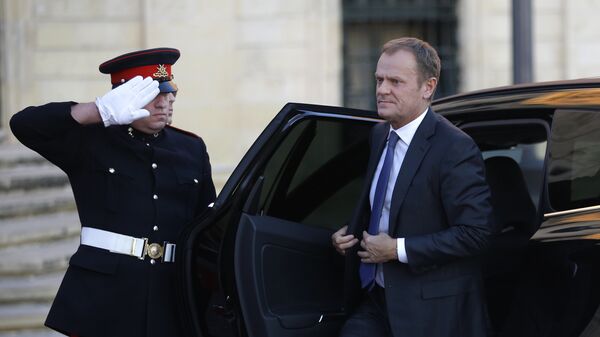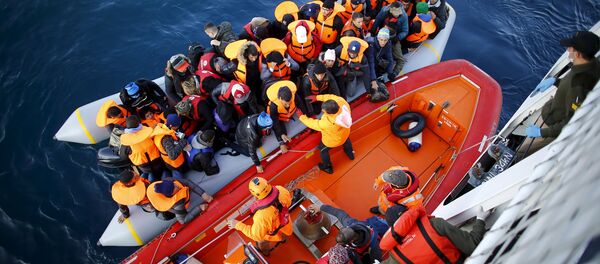There has been a lack of consensus within Europe over how to tackle the crisis, with Germany and Sweden originally welcoming Syrian refugees, yet Greece and Italy bearing the brunt of the Mediterranean migration crisis — because of their geographical position — which has been exacerbated by the African diaspora.
#VallettaSummit | @EU_Commission represented by @JunckerEU, @FedericaMog & @MimicaEU More: https://t.co/g3Co2Al5mO pic.twitter.com/DeMXBX6pj7
— European Commission (@EU_Commission) November 11, 2015
At the EU summit in April, EU leaders called for an international summit — embracing European and African nations — to discuss trafficking, safety and patrolling at sea, and the prevention of the illegal movement of people.
We need to build opportunities not walls with #Africa —@FedericaMog ahead of #VallettaSummit https://t.co/sakZeuLeCz pic.twitter.com/zQ9kXXW4Ur
— European Commission (@EU_Commission) November 11, 2015
Although four summits on the European refugee crisis were called between April and October, Europe remained divided on how to deal with the problem. Germany's Chancellor Angela Merkel faced a split in her coalition government over transit camps and border controls with Austria and many countries erected fences or closed their borders — albeit temporarily — to try to deal with the situation.
Ahead of #VallettaSummit EU/AU should put human rights at heart of migration efforts @hrw https://t.co/8TtkhAahDr pic.twitter.com/L5haY8AWiJ
— Joanna Nowak (@joannanowakbxl) November 10, 2015
Pragmatic Approach?
Meanwhile, the EU has moved — even if late-in-the-day — to strengthen its outer borders, including the Mediterranean sea-facing boundaries. However, it is now pursuing a policy of paying countries to prevent more refugees crossing into Europe.
EU-Africa Summit must not dress up border control as ‘co-operation’ https://t.co/zuz9MyFHCq Photo © Giles Clarke pic.twitter.com/NYAWBtnS44
— AmnestyInternational (@AmnestyOnline) November 10, 2015
In October, EU leaders have agreed to pay Turkey US$3.4 billion and allow visa-free EU travel for its citizens in return for Ankara doing its utmost to stem the tide of asylum seekers crossing its borders to reach Europe.
The Malta conference is expected to see a similar policy invoked over Africa, with the EU funding projects to improve the lives of Africans to prevent people seeking asylum in Europe, as well as grants to take people back to their home nations.
.@LaurentFabius Development aid money is not for reducing migration #Valletta https://t.co/P2oOtyMU3h Pls RT pic.twitter.com/T4o5bGvexo
— Oxfam International (@Oxfam) November 11, 2015
Opening the summit, European Council President Donald Tusk said:
"There are many ways in which we are going to be more active and smarter in how we tackle them in partnership. One is a new Emergency Fund for Africa with seed funding of €1.8 billion [US$2.7bn].
"On top of our existing development aid to Africa, this new fund will help us — working together — to offer the peoples of Africa a better future.
"We will help African governments to reintegrate their own nationals and offer them meaningful socioeconomic opportunities, including by funding training and educational programs and creating new revenue streams for struggling communities. We will provide administrative help and more resources to assist African countries to deal with the huge migrations happening within Africa itself."
Critics says the EU leaders are throwing money at a problem without dealing with the daily needs of those already living in difficult conditions in Europe. However, diplomatic sources have told Sputnik that the Malta conference is an example of the EU taking a pragmatic approach with African nation sin getting to grips with the root cause of migration in Africa.
European Parliament President Martin Schultz summed up the frustration over Europe's lack of consensus so far, saying:
"We must use the Valletta Summit wisely to stop patching up short-term solutions and come up with comprehensive migration policy with African partners."





